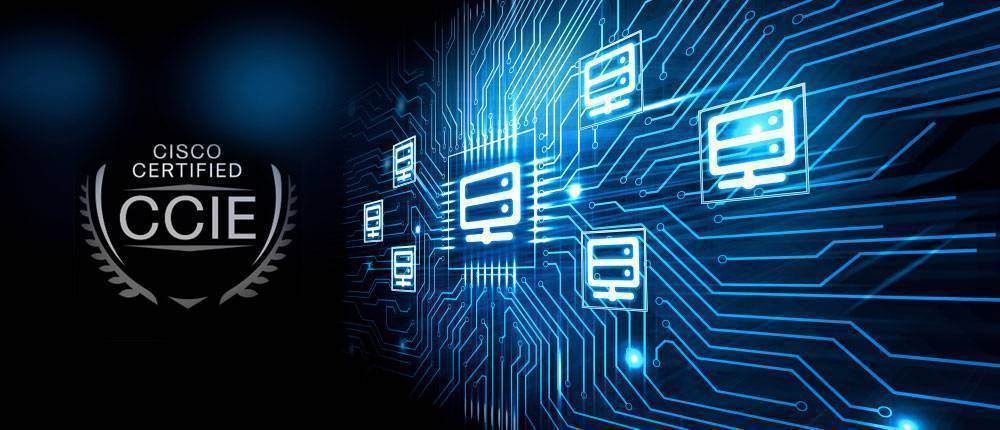Are you considering the CCIE certification? If so, you’re not alone. This prestigious credential is often regarded as one of the most challenging certifications in the IT world. With its rigorous exams and deep technical knowledge requirements, many aspiring candidates find themselves asking: Is CCIE difficult to pass?
Before diving into that question, let’s explore what makes this certification so sought after and why it holds such a high status among networking professionals. Whether you’re just starting your journey or looking for ways to conquer the exam, understanding the ins and outs of CCIE will give you a clearer path forward and view publisher site.
What is ccie certification?
The Cisco Certified Internetwork Expert (CCIE) certification is a hallmark of excellence in networking. It showcases an individual’s ability to troubleshoot, configure, and implement complex network solutions.
Designed for expert-level professionals, the CCIE demands not just theoretical knowledge but also practical skills. Candidates must demonstrate their expertise through rigorous hands-on labs and challenging written exams.
Achieving this certification signals to employers that you possess advanced technical prowess. This can open doors to high-level positions in prestigious companies worldwide.
Earning the CCIE isn’t merely about passing tests; it’s a significant commitment that requires extensive study and real-world experience. The journey itself shapes you into a more capable professional in the fast-evolving landscape of technology.
The History and Prestige of CCIE
The Cisco Certified Internetwork Expert (CCIE) certification has a storied history that dates back to 1993. It was crafted to address the growing need for networking experts who could design, implement, and troubleshoot complex networks.
Over the years, CCIE has evolved into one of the most prestigious IT certifications in existence. Earning this title signifies not just knowledge but mastery over intricate networking concepts and protocols.
With rigorous exams and hands-on labs, candidates must demonstrate their skills under pressure. This intense process weeds out all but the most dedicated professionals.
Today, CCIE is recognized globally as a hallmark of excellence in network engineering. Organizations value it highly when hiring or promoting talent within their ranks. The prestige attached to CCIE continues to draw aspiring engineers looking to elevate their careers and stand out in an competitive field.
The Different Tracks Available
The CCIE certification offers various specialized tracks, allowing candidates to tailor their journey according to their interests and career goals. Each track focuses on a specific area of networking expertise.
Candidates can choose from tracks like Routing and Switching, Security, Collaboration, Data Center, Service Provider, and Wireless. This diversity enables individuals to hone in on the skills that matter most for their desired job roles.
Routing and Switching remains one of the most popular options. It covers fundamental networking principles crucial for any aspiring network engineer. The Security track is ideal for those passionate about safeguarding networks against threats.
Collaboration emphasizes unified communications while Data Center delves into virtualization technologies. The Service Provider track caters to professionals working with large-scale service providers.
Wireless offers insights into wireless networking solutions essential in today’s mobile world. Each path presents unique challenges but provides significant rewards upon completion.
Exam Format and Difficulty Level
The CCIE exam is known for its rigorous format. It consists of two parts: a written test and a hands-on lab. First, candidates tackle the written portion, which assesses theoretical knowledge and troubleshooting skills.
Passing this exam requires a deep understanding of networking concepts. The questions are scenario-based, demanding not only memorization but also critical thinking.
Once you pass the written exam, it’s time for the lab. This part is where most candidates find their greatest challenge. You’ll have eight hours to configure devices in real-time scenarios—an intense experience that tests practical application under pressure.
Many describe the lab as unforgiving; even minor mistakes can lead to failure. This complexity stems from the need for both technical skill and composure during stressful situations, making preparation essential for success in this esteemed certification path.
Tips for Preparing for the CCIE Exam
Preparing for the CCIE exam requires strategic planning and dedicated effort. Start by creating a solid study schedule that allocates time for each topic.
Utilize official Cisco resources, including their recommended study materials and lab exercises. These provide invaluable insights into what to expect on the test.
Join study groups or online forums where you can exchange tips and engage with other candidates. Collaboration often leads to deeper understanding.
Hands-on practice is crucial; set up your own lab environment if possible. This will help reinforce concepts while building practical skills.
Don’t overlook the importance of mock exams. They simulate real testing conditions and highlight areas needing improvement.
Maintain a balanced routine—don’t forget to take breaks! Mental well-being plays a significant role in retaining information effectively as you prepare for this challenging certification path.
Real Life Experiences of CCIE Candidates
Many CCIE candidates share their journeys filled with both struggles and triumphs. For some, the path is paved with countless late nights of studying and hands-on lab work. They often recount moments of self-doubt, wondering if they could ever grasp the complexities of networking.
On social media forums, success stories stand out. Candidates celebrate passing after multiple attempts, emphasizing resilience as a key factor in their journey. The sense of community among aspiring professionals provides motivation during tough times.
Some individuals focus on specific tracks like Collaboration or Security. Their experiences vary widely based on personal interests and backgrounds in IT.
Networking events become invaluable for many who seek advice from seasoned CCIE holders. These interactions can spark new strategies that lead to breakthroughs in understanding challenging concepts.
Each candidate’s story adds another layer to what it’s really like to pursue this prestigious certification.
Conclusion: Is the CCIE Worth it?
The CCIE certification holds a prominent place in the IT industry. For many professionals, it symbolizes top-tier expertise and commitment to networking excellence. Earning this credential can open doors to advanced career opportunities and higher salary brackets.
However, the journey is not without its challenges. The rigorous preparation required can be intense, demanding time management and dedication. Candidates often find themselves immersed in complex topics that push their limits.
Whether or not the CCIE is worth pursuing depends on individual goals and aspirations. If you are passionate about network engineering and committed to continuous learning, this certification could indeed be a game-changer for your career path.



